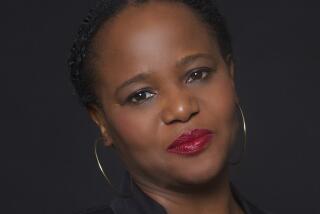Criticism That’s as Rewarding as Its Topics
“American Fictions,” a regrouping of some of Elizabeth Hardwick’s strongest and most beautiful literary essays, draws for its contents on her recent “Sight Readings” as well as on three previous collections (“Seduction and Betrayal,” “Bartleby in Manhattan” and “A View of My Own”), which, taken together, have established her as one of the wisest readers and writers about reading on the American literary scene. The work in this book may not be new, but any chance to listen to Hardwick reflect on Edith Wharton, Henry James, John Cheever, Mary McCarthy and Philip Roth (to name only a handful of her subjects) is a very great pleasure indeed.
Hardwick writes in the tradition, which is sadly fading out of our culture, of the general literary essayist. In this century, Virginia Woolf was its most sparkling practitioner. Cynthia Ozick writes brilliantly in the genre. Among younger writers, James Wood has embraced the form, but he is sometimes excessively concerned with recalibrating reputations. Hardwick’s mind is far from uncritical, but on the whole she is more committed to thinking and sleuthing through what a writer does well, and how and why. Her essays succeed doubly: To those who are unfamiliar with a writer’s work, they serve as an elegant introduction to it; to those who have read the material, they serve as an invitation to join in a thoughtful dialogue. “Dialogue” is essential and, of course, an illusion: It is Hardwick’s gift to make the reader feel as though her essays are conversations, when they are the product of her perspicacious mind only.
Hardwick’s characteristic mixture of the biographical and the critical operates on the reasonable assumption that a writer’s life and work are importantly conjoined. She moves back and forth between the two, working up an essay that, in the end, is a small jeweled narrative of its own, a distillation that is selective rather than exhaustive, rarely predictable and always insightful.
In her preface, Hardwick speaks of the “dare of exegesis” inherent in every work of fiction; it is a dare she meets boldly and with great empathy for the complexity of conjuring a successful imaginative world. She has an estimable way of putting her finger on just the detail of a writer’s life or narrative habit that illuminates his larger creative predicament. Of Edith Wharton’s later career, for instance, she says a life like hers in “upholstered exile” in France “may have the gloomy effect of attaching one to intransigence in the arts, against the uprooted impertinence of modernism.” The descriptive acuity--”upholstered” set against “uprooted impertinence”--sharply suggests why some of Wharton’s final novels have a closed, hermetic, slightly stale air.
She grasps why Catherine Sloper, the heroine of James’ “Washington Square,” remains so compelling and enduring a figure. “The contract of life,” Hardwick says, speaking of Catherine’s misjudged love for Morris Townsend, “should guarantee the right to make one’s own mistakes.” The contract of life: It is just this that Catherine’s father, a classic worried and overbearing parent, seeks to deny her. Hardwick continues: “James had thought deeply about the need to ‘experience,’ to take the dare, to live, and to him, sedentary as a monument, to live meant personal experience, to risk love.” Here she blends her reading of James’ work and his life to produce a spot-on, poignant perception of one of the human flames that kindled the master.
Hardwick is deft with the sly summing up. Gertrude Stein, for instance, made egoism and laziness “work together like a machine, a wondrous contraption, something futuristic and patented for her use.” Djuna Barnes possessed “a crippling facility for inspired verbal cartooning.” In the tragically troubled Zelda Fitzgerald Hardwick registers “a deep sense of personal ambition, a feeling that there was something unique and possible inside her if only she could get at it, use it,” and of Mary McCarthy she says shrewdly, “a career of candor and dissent is not an easy one for a woman.”
While Hardwick is a fine observer of women (her essay on Margaret Fuller is a moving example of its kind), she brings an open, curious, democratic sensibility to everyone she reads, female and male, period and modern. “American Fictions” is literature about literature, with intelligence that shines out on every page.
More to Read
Sign up for our Book Club newsletter
Get the latest news, events and more from the Los Angeles Times Book Club, and help us get L.A. reading and talking.
You may occasionally receive promotional content from the Los Angeles Times.







